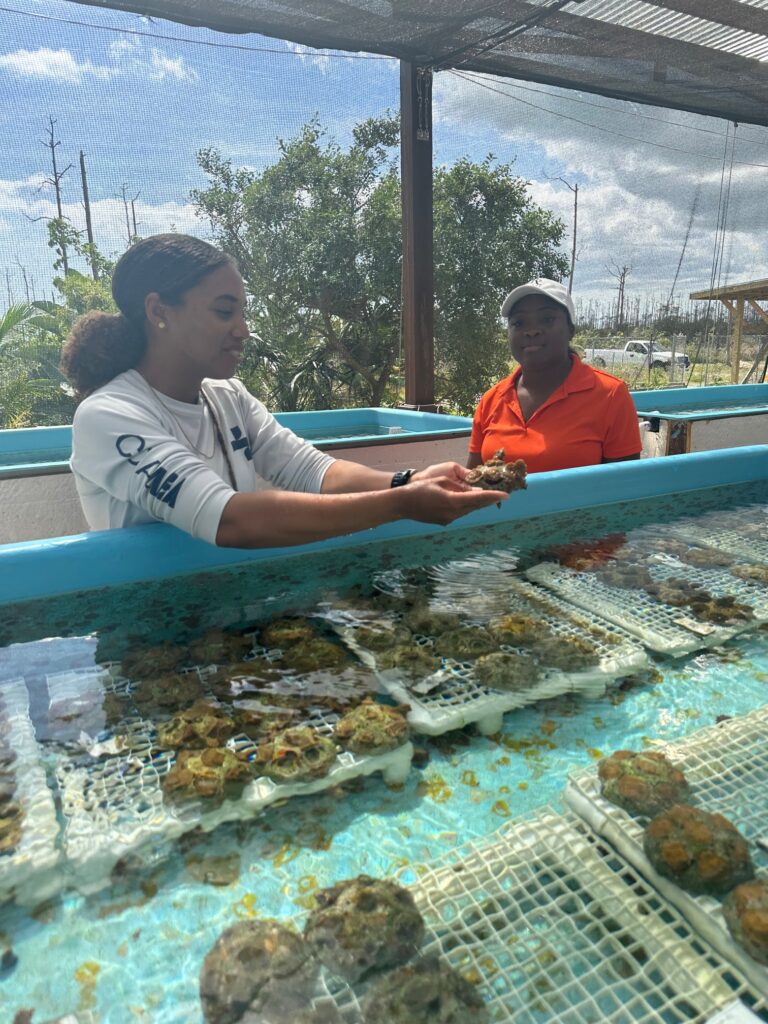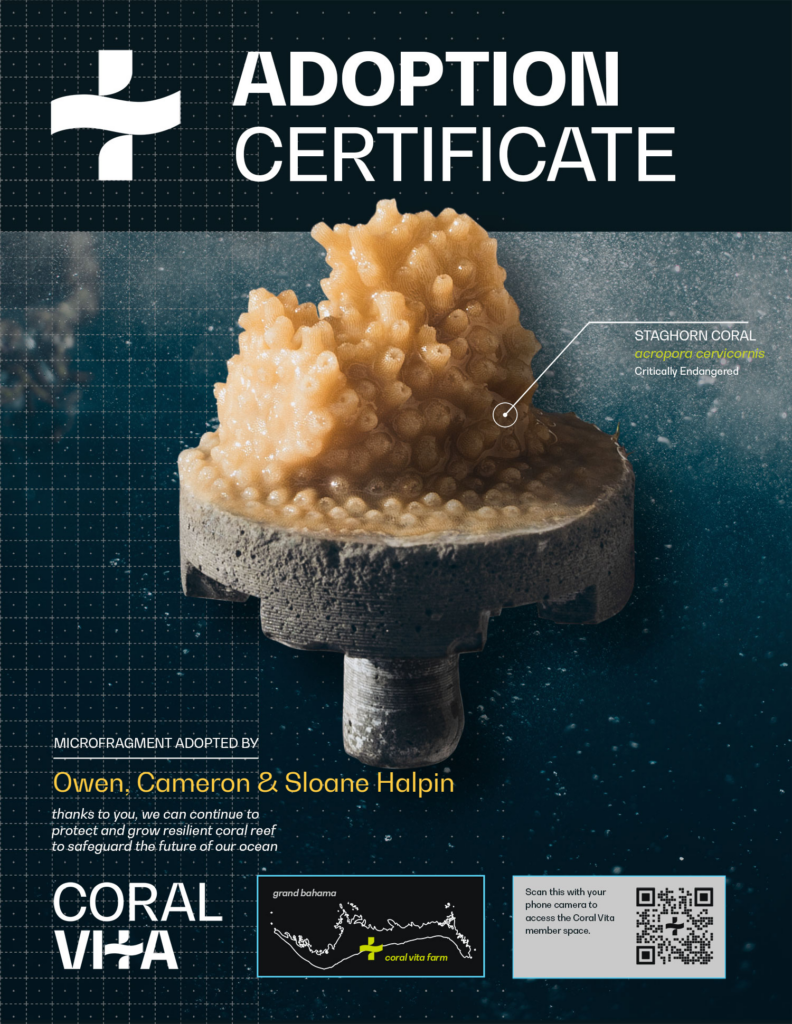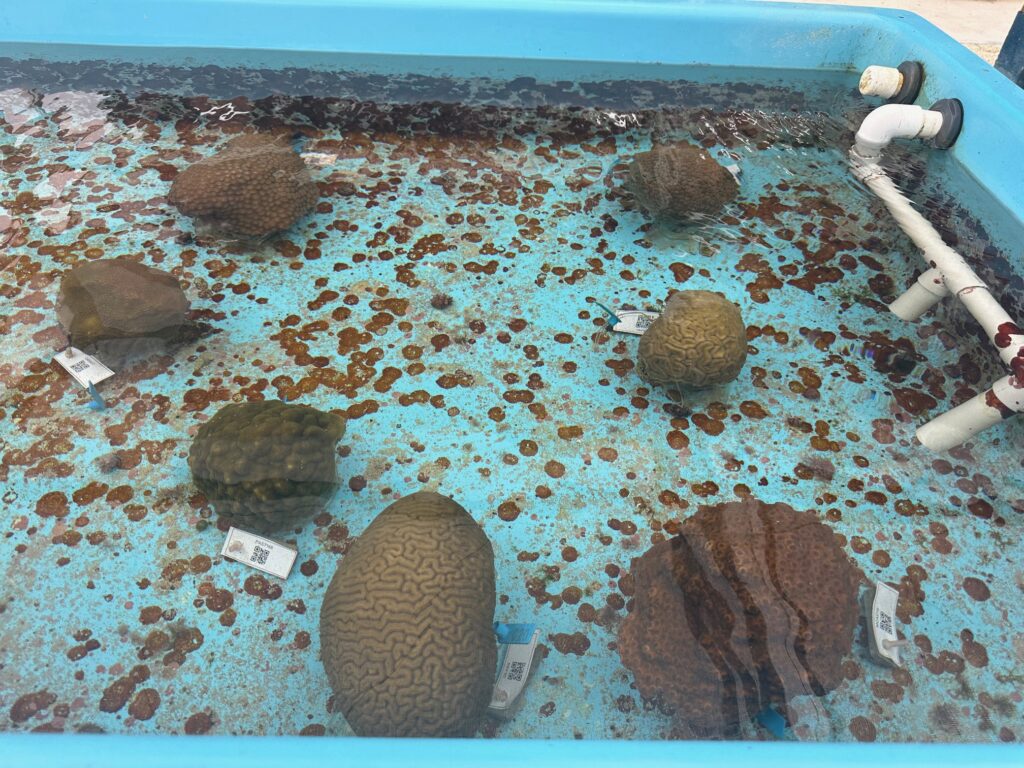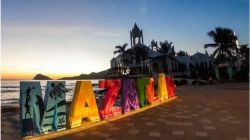When I’m not lucky enough to take my grandchildren with me when I travel, I try to look out for ways in which I can make the place I’ve visited a little bit better for them to visit in the future, or at least to conserve what I’ve been able to experience.
When you think of the Bahamas, you might think of beautiful clear aqua waters, endless sandy beaches, palm trees, welcoming smiles…and great big cruise ships dwarfing the island docks. These images are accurate and can seem at odds with each other. But are they?

The Bahamas is an archipelago made up of approximately 700 islands and 2,400 cays, but only 30 of these islands are inhabited. The island of New Providence is only 200 square kilometers, but hosts the capital and largest city of Nassau, with a population of 270,000. You wouldn’t be wrong to think about Nassau as the Las Vegas of the Bahamas, landmarked by the iconic hotel Atlantis.
Downtown Nassau can see up to 25,000 tourists disembarking at one time from the many large cruise ships which pull into their harbour daily. The tourism dollars they bring in are crucial to the economy of this small island nation, particularly after changes to their banking laws saw that sector shrink significantly. Tourism is their number one industry.
While many conservationists and environmentalists decry the very existence of these ships and the damage they might to the fragile ocean ecosystem, they are the lifeblood of many island economies, including this one.
Freeport is the Bahama’s second largest city (population 50,000) on the island of Grand Bahamas. This island was decimated during Hurricane Dorian in 2019. Many homes, businesses and people were lost forever in this violent storm, the effects of which are still being felt today as they rebuild their lives and livelihoods. One of the ways they are doing this is by expanding the cruise ship business into this island, including the building of a new dock and significant tourist area called Carnival Celebration, which is expected to open in the summer of 2025.
An in-person meeting with the Deputy Prime Minister, and Minister of Tourism, the Honorable Chester Cooper, confirmed the country’s excitement over the prospect of generating more jobs and a healthier economy in the Grand Bahamas.
But also, nestled on this island, is a small environmental team determined to reverse the ravages of the hurricane, climate change, and human interaction.
Coral farm Coral Vita was established before the hurricane, but wiped out when all their coral growing bins were swept out to sea during the storm.
Alannah Vellacott, Coral Restoration Specialist at Coral Vita, started her talk with us with a startling statistic revealing that up to 90% of the coral surrounding that island could disappear by 2050. “This is a result of climate change and direct human impact.”
She paused.
“Climate change”, she said, “Spoiler alert: It’s real.”
But why devote resources to protecting coral reefs in particular?
The mission of Coral Vita is clear. “Coral reefs are one of most important ecosystems on the planet. They are a cornerstone of life in the ocean, supporting 25% of all marine species. These incredible ecosystems are also a source of food for hundreds of millions of people; they power coastal economies around the world through tourism, fishing, and recreation; and reefs shelter coastlines from storms and erosion.”
Their restoration efforts are robust and definitely required.

A visit to Coral Vita is both educational and inspiring as these marine scientists grow coral from tiny cells into organisms which are large enough to replant to the ocean floor. Tours are available for the public, as well as the opportunity to Adopt-A-Coral (which I have done, on behalf of my grandchildren, and we can’t wait to get information on this tiny piece of coral as it grows).
Cruise ships aren’t the biggest risks to coral reef, neither is their impact insignificant. They are, however, one of the most important economic contributors to this island nation, whose revenue is necessary for the residents.
As with most things in life, an action causes a reaction, and with all things there needs to be a balance of environment and economy. The Bahamas is finding their way, along with the rest of the world. I asked our cab driver how he felt about the large ships docking in Nassau, where he had lived his entire life.
“We love it. We absolutely love it. Keep it coming!”
And I hope to, when I can hopefully return with my grandkids, by sea or by air, to visit their own piece of coral.
Kathy Buckworth was hosted by The Bahamas Tourism Board. Opinions are her own.







